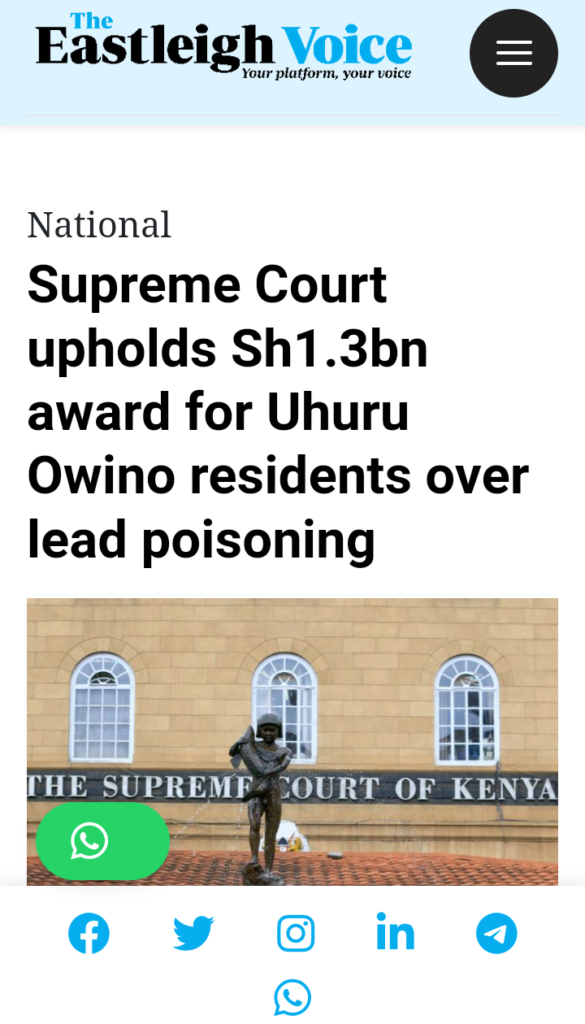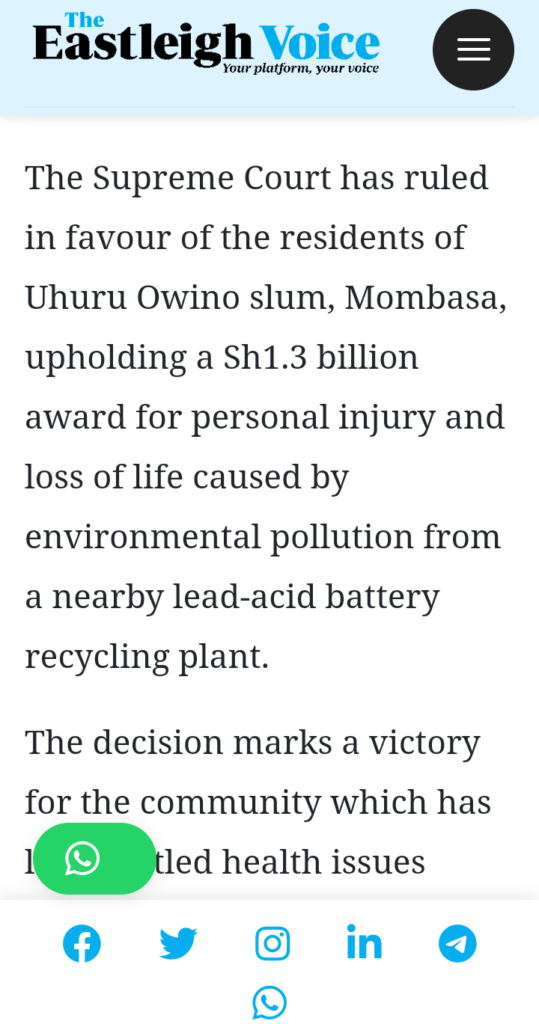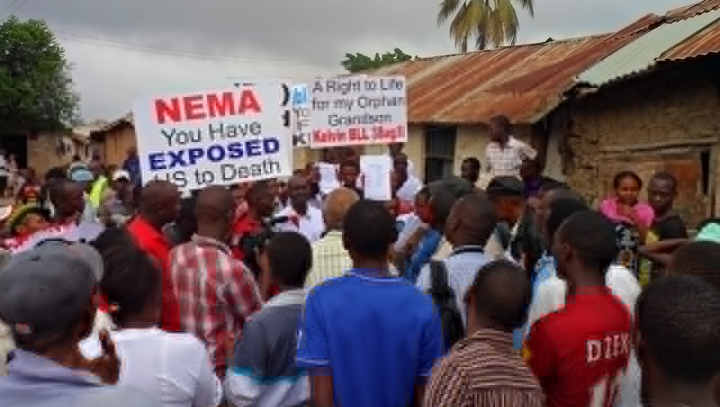The Supreme Court of Kenya has ruled in favor of the residents of the Uhuru Owino slum in Mombasa, confirming a Sh1.3 billion award for personal injuries and loss of life linked to environmental pollution from a nearby lead-acid battery recycling plant.
This decision represents a significant victory for the community, which has faced severe health issues due to lead poisoning caused by the Metal Refineries EPZ Limited plant.
The plant, which operated from 2006 until its closure in 2014, was found to have polluted the environment, leading to extensive health problems for the residents.

In the judgment delivered on Friday, the Supreme Court emphasized the principle that those responsible for pollution should bear the cost of compensating the victims and restoring the environment.
The court’s ruling ordered that the Sh1.3 billion compensation be paid to the affected residents within ninety days, with the payment responsibility falling on the first appellant and the other respondents involved in the case.
This decision serves as a powerful reminder that those who harm the environment should take full responsibility for their actions.
The court’s ruling is based on the premise that the polluter must not only pay for the damage caused but must also undertake efforts to restore the environment to its previous state.

In this case, the court reiterated the “polluter pays” principle, which holds that those responsible for environmental harm must bear the costs of preventing, controlling, and remediating the damage.
The ruling also reinstated a previous award of Sh700 million for environmental restoration.
However, the court sent the matter back to the Environment and Land Court (ELC) for further review of the compensation for loss of life and personal injury.
As part of the ruling, the Supreme Court ordered Metal Refineries EPZ Limited and the National Environment Management Authority (NEMA) to clean up the contaminated soil and water within four months.
NEMA was also instructed to provide progress reports on the restoration efforts to the ELC every three months.
This directive reflects the court’s commitment to ensuring that the environmental damage caused by the pollution is properly addressed.
In its ruling, the court highlighted that NEMA had failed to invoke the “polluter pays” principle as required by the Environmental Management and Coordination Act (EMCA).
NEMA had not taken steps to prosecute those responsible for the pollution or made any efforts to pay for the environmental restoration.
This oversight led to a delay in addressing the damage caused by the metal refinery’s operations.
The legal battle began after Metal Refineries set up operations in Uhuru Owino in 2006. The company focused on recycling lead-acid batteries, which resulted in toxic pollution in the surrounding areas.
After the closure of the factory in 2014, the residents of Uhuru Owino were left to deal with the lasting effects of the pollution.
This ongoing court case highlights the need for accountability when it comes to environmental damage and the health of communities.
The government, NEMA, Metal Refineries, the Ministry of Health, and the Mombasa County Government have all been involved in the case, underscoring the significance of this issue in ensuring that polluters are held responsible for the harm they cause.





















Add Comment